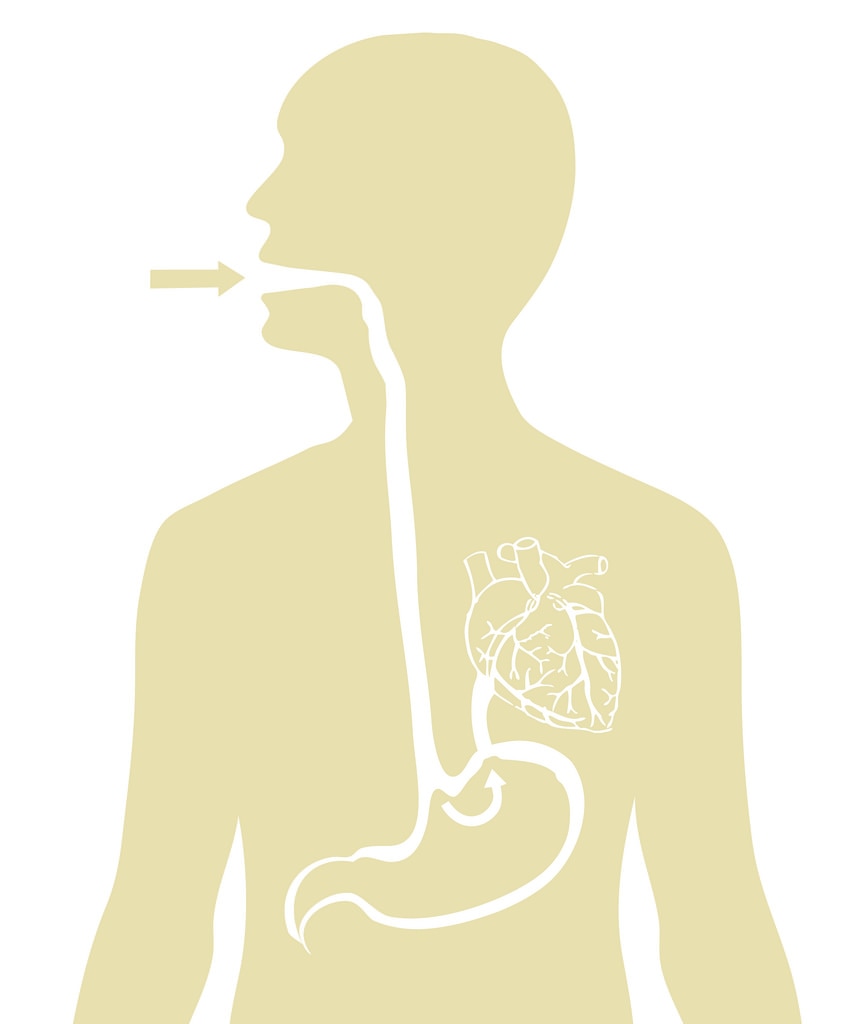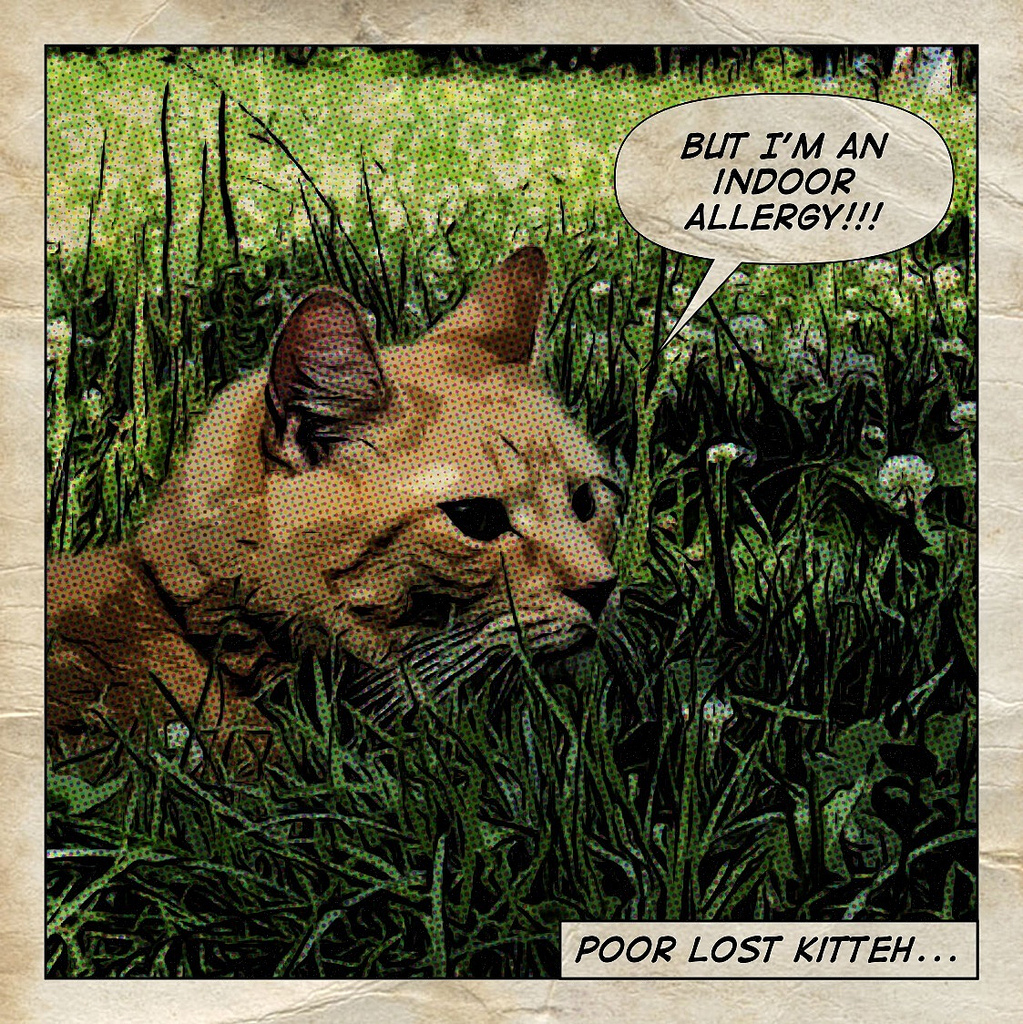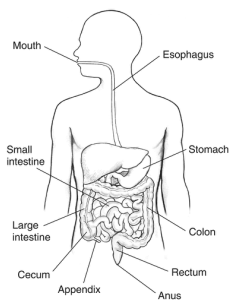Well that has to do with the composition and state of the small and large intestine. There’s anywhere from about 10-100 billion microbes present in the small and large intestine. This helps us understand why giving a probiotic or eating fermented foods makes a difference, because there’s enough probiotics present in the average capsule to replenish and encourage growth of good bacteria. Also, the small intestine is approximate 20 ft long, so it houses about 95% of the bacteria that live in our intestines. The large intestine on the other hand is only 4 ft long, but because things are moving much slower through the large intestine the bacteria layer in the mucosa can be up to 200 cells thick, compared to 1 cell thick in the small intestine. This allows this shorter stretch of organ to still accommodate 10-100 billion microbes. Research: As I mentioned before there are many studies that have been done and are currently being done on the effects of probiotics and the microbiome as a whole. If you did a simple google or pubmed search you would come up with 1000s of results. I can’t summarize all of them, but here are a few highlights: INFANTS AND PROBIOTICS Eczema, asthma and allergy have become much more of a problem over the past few decades than they ever were before. In the Swansea baby Allergy Prevention Trial they looked to see if intervening with probiotics at an early age could reduce the incidence of allergy, and atopic conditions by extension. The intervention was given to newborns for the first 6 months after birth. The outcome was a follows: Placebo group: Almost 10% of infants had atopic eczema at 6 months; Approximately 13% of infants had atopic eczema at 2 years. Probiotic group: Approximately 3% of infants had atopic eczema at 6 months; almost 6% of infants had atopic eczema at 2 years. The overall reduction of infants with allergy was 57% at 2 years. Remember, they only received treatment for the first 6 months. This demonstrates that the positive benefit of intervention goes beyond the intervention period. PROBIOTICS AND ANTIBIOTICS Most people are aware that we should take probiotics when we take an antibiotic. However, how much, when and for how long make a difference? One study, The Cambridge Clostridium difficile trial looked at the impact of probiotics to prevent/reduce C. difficile infection and associated diarrhea in patients receiving antibiotics. The outcome was as follows: Antibiotic/Placebo group: When tested at Day 28 they still had overgrowth or dysbiosis present Antibiotics followed by probiotic: They had a growth of bacteria up to Day 7, but then at Day 28 there was a significant decrease in bacterial overgrowth Antibiotics with Probiotics: There was no overgrowth of bacteria at Day 7 or 28 because the probiotics were present throughout antibiotic treatment This study demonstrates that by taking probiotics while receiving antibiotics you can decrease the chances of bacterial overgrowth occurring at all. However, it is still beneficial to intervene with probiotics later on as it will help to bring bacterial overgrowth under control.
Choices: Making sense of what’s available on the market As happens with most things in the market, as they get more popular there tends to be more people interested in developing a product for it. Over the last few years we’ve seen a huge increase in the number of probiotics available at the store. Knowing you have all these choices, how do you make the right choice for you? Well, there’s no short and easy answer to that. There are a number of factors you want to consider:
Knowing these things makes it much easier for you to select an appropriate probiotic. If you don’t know the answer to these questions or aren’t sure, then you may want to speak to a Naturopathic Doctor or other healthcare professional. When I go through this process with my patients, we figure out which probiotic (if any) might be best for them so it’s much easier to find what they need when they go to purchase a product from the health food store. Have questions about probiotics or how to improve your gut health overall? Please email me through the website ‘contact’ page or get in touch with me directly. Note: Talk to your Naturopathic Doctor today about getting assessed and treated if needed, and as always talk to your health care provider before beginning any new medication or supplement. This information is not meant to replace the advice/guidance of a medical professional, nor should it be acted upon by individuals unsupervised by the appropriate healthcare provider. References: Allen SJ et al 2014 Arch Dis Child Plummer et al 2005, Int J Antimicrob Agents 26
0 Comments
The Stats In the US: · Number of people in the U.S. who have either allergy or asthma symptoms: 1 in 5. · Percentage of the U.S. population that tests positive to one or more allergens: 55%. Internationally: The prevalence of asthma in different countries varies widely, but the disparity is narrowing due to rising prevalence in low and middle income countries and plateauing in high income countries.
Suffering from allergies can be a very irritating experience. If you or your child is suffering from allergies, it is best to take them to a Naturopathic Doctor who can perform a proper assessment and form a treatment plan that will address your/your child’s needs. Always speak to your health care provider before beginning any new medications or supplements. References: Allergy Statistics and Facts. WebMD. Reviewed by Johnson, K. (2012). http://www.webmd.com/allergies/allergy-statistics Asthma Statistics. American Academy of Allergy, Asthma & Immunology. http://www.aaaai.org/about-the-aaaai/newsroom/asthma-statistics.aspx Romm, A. 2003. Naturally Healthy Babies and Children: A Commonsense Guide to Herbal Remedies, Nutrition, and Health. Celestial Arts. Skowron, JM. 2009. Fundamentals of Naturopathic Pediatrics. CCNM Press. Print.
Why do we care about Liver Health? One of the most important functions of the liver is to detoxify our bodies. With the popularity of detox diets these days many people worry about the liver’s ability to detoxify, but in fact there’s no need to worry because unless your liver is in the final stages of failure then it’s going to detoxify your body all on its own. Without getting too in depth with the physiology, the liver breaks everything down in two phases, the fat- soluble and water- soluble toxins.
All this means is that everything needs to be broken down in stages, so it can be effectively recycled or shuttled out of the body in the form of waste (namely urine or stool). If these functions aren’t done properly, this can have profound effects on just about every other system in the body. If the liver isn’t functioning properly then overall digestion, metabolism, hormonal balance and the immune system don’t function well. The Liver performs the following vital functions:
Essentially, without the liver it would not be possible to survive very long. We are living in a Toxic world We are exposed to all kinds of toxins every day of our lives. From the moment we are conceived, we are exposed to toxins through our mother. At present, there are over 80,000 chemicals registered by the Environmental Protection Agency. 3,800 are ‘high-use’ chemicals and less than ½ have been assessed for toxic effects in humans. Less than 9% of these chemicals have been assessed for toxic effects on children. If we don’t take care of our liver’s health, we won’t be able to function in our toxic laden environment. How do we know we’re experiencing symptoms of toxicity? Well that in and of itself is part of the problem. The overall symptoms of toxicity are quite general, and can easily be mistaken as part of another problem. Some of the symptoms include: fatigue, headaches, muscle and joint pain, mood changes, cognitive impairment and possibly neurological problems.  Are you susceptible to toxicity? Multiple factors affect how your body deals with toxic burden.
To better understand what toxicity looks like in the body, the analogy I like to use is a bucket. We all have different buckets, some are short and fill very quickly, or have a spout that doesn’t drain effectively, or perhaps an average size bucket with a decently emptying spout. However your bucket functions, determines how quickly it will fill (accumulate toxins) or empty (eliminate toxins). Unfortunately, those of us with shorter buckets/poorly draining spouts are more likely to build up toxins quickly and/or not eliminate them quickly enough to avoid symptoms of toxicity. What Can We Do?
Work with a medical professional to help correct problems
Note: Talk to your Naturopathic Doctor today about getting assessed and treated if needed, and as always talk to your health care provider before beginning any new medication or supplement. This information is not meant to replace the advice/guidance of a medical professional, nor should it be acted upon by individuals unsupervised by the appropriate healthcare provider.  Gastroesophageal Reflux Disease (GERD) Many people in the Western world suffer from heartburn on a daily basis. Of those individuals, approximately 20-40% of them have GERD (Gastrointestinal Reflux Disease). The symptoms result from exposure to gastric contents causing esophageal irritation. For most people, the lower esophageal sphincter (LES) is often weakened or other interfering factors can prevent it from closing properly.
Conventional Treatment Typical treatment of heartburn symptoms is the use of antacids (eg. Tums) or stronger medications that can block or suppress the production of hydrochloric acid (HCl). Naturopathic Treatment Usually a combination of nutritional, dietary and lifestyle treatment is used to address GERD. If the patient is compliant, usually treatment is very effective. Almost every GERD patient will need to identify and avoid foods and medications that trigger symptoms. Most people also find eating smaller meals with more frequency (6 small meals as opposed to 3 larger meals) and not lying down immediately following a meal is also beneficial. Dietary and Drug Triggers of GERD
Nutrients and Herbs
Melatonin: Found to be capable of protecting the esophagus and mitigating the effects of many inflammatory mediators. One study where individuals were treated with melatonin and a few other nutrients (l-tryptophan, Vitamin B6, folic acid, Vitamin B12, methionine, and betaine) or omeprazole, and those treated with melatonin experienced 100% resolution of symptoms compared to 65.7% in those treated with omeprazole. Phosphatidylcholine (PC): Cell membranes are typically rich sources of endogenous PC, which usually acts as a reservoir for free choline. Free choline is important for acetylcholine synthesis, and acetylcholine has been linked to increased closure of the LES. Licorice Root (Glycyrrhiza glabra): Considered a demulcent, meaning it coats, soothes and protects tissue. Commonly used for a number of gastric concerns including GERD. Marshmallow (Althaea officinalis): Another good demulcent and anti-inflammatory herb that is particularly known for soothing inflamed or irritated mucous membranes. There is no one set formula for preventing GERD, but through proper treatment and working with your health care provider you can learn to manage this condition well. Talk to your Naturopathic Doctor today about getting assessed and treated if needed, and as always talk to your health care provider before beginning any new medication or supplement. Note: There are many possible causes of chest pain, including more severe conditions such as a heart attack. If you are uncertain of the cause of your chest pain make sure you see your doctor to get it evaluated as soon as possible. References: Godfrey A. & Saunders P.R. (2010) Principles & Practices of Naturopathic Botanical Medicine: Volume I: Botanical Monographs. Central Nervous System, pg. 161-163. CCNM Press. Prousky J. (2008) Principles & Practices of Naturopathic Clinical Nutrition. Gastroesophageal Reflux Disease (GERD), pg. 126-129. CCNM Press. |
Sarah Connors
I am a Naturopathic Doctor and Doula providing care in the Kitchener-Waterloo area. I have a passion for helping people with their health issues and improving the birth experience for Moms, and their babies. I also have a life long love affair with soccer, curling, and the alto saxophone. Archives
November 2020
Categories
All
|
Photos from Rural Royalty, manu flickr2010, Ryan Dickey, wocintechchat, huskyte77, paulswansen, Black Room Photography, harum.koh, Emery Co Photo, JeepersMedia, BrownGuacamole, wellnesswildflower, JeepersMedia, vastateparksstaff, colindunn, seelensturm, /\ \/\/ /\, 50mm.za, The Simpsons (Lee, Shirley, Luke and Rachel), AGRONAUTI, aivas14, Jonathan Rolande, winnifredxoxo, juhansonin, osseous, nan palmero, Theo Crazzolara, brianfagan, TP studio, wuestenigel, torbakhopper, anka.albrecht, Michael Stern, [-ChristiaN-], franchiseopportunitiesphotos, terren in Virginia, nateOne, barnimages.com, Dun.can, wuestenigel, @lattefarsan, amandabhslater, aphrodite-in-nyc, nutritionaldoublethink, Anne Worner, donnierayjones, mikecogh, angeloangelo, Rob.Bertholf, getaiwan, Lida Rose, matsuyuki, SurFeRGiRL30, marcoverch, amsfrank, mdaltry, nutrition education, Mike Prince, Edsel L, Neighborhood Nini, philipp.alexander.ernst, Mediocre2010, homethods, quinn.anya, Gamma Man, katerha, Eric Kilby, National Institutes of Health (NIH), rcmd_cfdfw_5_2, curtis palmer, Ray in Manila, frankieleon, Airsoftpal.com, byzantiumbooks, cchana, Brian Legate, Matt Lavin, BradHinton, monpetitchouphotography, wuestenigel, alexisjordanlewis, ByEPhotos, erix!, RLHyde, return the sun, quinn.anya, mliu92, frankieleon, loudista, Lyn Lomasi, upslon, derrickbrutel, cchana, National Institutes of Health (NIH), watts_photos, marcoverch, derrickbrutel, francesbean, weegeebored, Airsoftpal.com, Etwood, wu_135, shixart1985, Ingrid Taylar, VeritasFotografie, BioDivLibrary, emmanuelmorales1, Thanks for 1.5 Million Views!!, Will Merydith, reader of the pack, RoxyHobbs, Khanelle Prod' Medias, storyvillegirl, agromonitor, Arenamontanus, six:eleven, cote, SweetOnVeg, nenoirenediaz, lucianvenutian, markhillary, anotherlunch.com, inkknife_2000, archibald jude, rawtrigger, Imaginary Museum Projects: News Tableaus, Pavel P., Courtney Emery, Thien Gretchen, physiognomist, bark, Michigan Municipal League (MML), alberth2, Merelymel13, neofob, Care_SMC, Parker Knight, B*2










 RSS Feed
RSS Feed
